Kiwifruit
How to submit an article:
- Registered users can submit any published journal article that has a unique DOI (Digital Object Identifier) name or link to Research Hub.
- For example, you can paste the full DOI link:
https://doi.org/10.1109/5.771073or just the DOI name:10.1109/5.771073into the field above and click submit. - The person who is first to submit a valid article to Research Hub will forever be credited for it, and every article submission earns you +6 Research Points.
Also known as: Actinidia Chinensis
Related Topics
Published research studies are articles that present the findings of original research that has undergone a peer-review process and has been made publicly available in scholarly journals, books or other media.
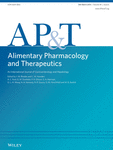
Systematic review and meta‐analysis: Foods, drinks and diets and their effect on chronic constipation in adults
2023 Oct 31 Alimentary Pharmacology & Therapeutics Van Der Schoot A, Katsirma Z, Whelan K, Dimidi E
Review Article Fruits Kiwifruit Rye Bread ConstipationFruits, especially kiwifruits, and rye bread can enhance bowel movements and help manage chronic constipation better than conventional dietary methods.
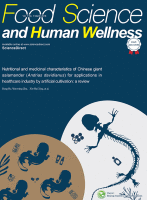
Polyphenols and pectin enriched golden kiwifruit (Actinidia chinensis) alleviates high fructose-induced glucolipid disorders and hepatic oxidative damage in rats: in association with improvement of fatty acids metabolism
2023 Sep Food Science and Human Wellness Alim A, Li T, Nisar T, Ali Z, Ren D, Liu Y, et al.
Overall, fleshes with pericarps from two A. chinensis (ACFP) employs more efficacious protective effects against HF-induced metabolic disorders and liver damage than pericarps from two A. chinensis (ACP) and pericarps from two A. chinensis (ACP).
Animal Study High Fructose Corn Syrup Kiwifruit
Cancer prevention and therapy with kiwifruit in Chinese folklore medicine: a study of kiwifruit extracts
2023 Aug Journal of Ethnopharmacology Motohashi N, Shirataki Y, Kawase M, Tani S, Sakagami H, Satoh K, et al.
Network Pharmacology Antioxidant Kiwifruit AntibacterialGold kiwifruit extracts contained different bioactive materials which showed selective cytotoxic activity against human oral tumor cells and displayed anti-HIV, antioxidant, and antibacterial activities.

The Impact of Kiwifruit Consumption on the Sleep and Recovery of Elite Athletes
2023 May 11 Nutrients Doherty R, Madigan S, Nevill A, Warrington G, Ellis JG
Clinical Study Kiwifruit Sleep Exercise PerformanceConsuming two medium-sized green kiwifruits an hour before bed can improve sleep quality and recovery stress balance among elite athletes.

Acute effects of fresh versus dried Hayward green kiwifruit on sleep quality, mood, and sleep-related urinary metabolites in healthy young men with good and poor sleep quality
2023 Mar 14 Frontiers in Nutrition Kanon AP, Giezenaar C, Roy NC, McNabb WC, Henare SJ
Randomised Controlled Trial Serotonin Sleep KiwifruitConsumption of fresh or dried kiwifruit in the evening improves aspects of sleep quality and mood, potentially mediated through changes in serotonin metabolism.
Research insights are moderated by the Research Hub team and offer an at-a-glance overview of interesting research findings.

2023 Alimentary Pharmacology & Therapeutics
Fruits, especially kiwifruits, and rye bread can enhance bowel movements and help manage chronic constipation better than conventional dietary methods.
Review Article Constipation Fruits Rye Bread
Systematic review and meta‐analysis: Foods, drinks and diets and their effect on chronic constipation in adults
Van Der Schoot A, Katsirma Z, Whelan K, Dimidi E

2023 Journal of Ethnopharmacology
Gold kiwifruit extracts contained different bioactive materials which showed selective cytotoxic activity against human oral tumor cells and displayed anti-HIV, antioxidant, and antibacterial activities.
Network Pharmacology Antibacterial Antioxidant
Cancer prevention and therapy with kiwifruit in Chinese folklore medicine: a study of kiwifruit extracts
Motohashi N, Shirataki Y, Kawase M, Tani S, Sakagami H, Satoh K, et al.

2023 Nutrients
Consuming two medium-sized green kiwifruits an hour before bed can improve sleep quality and recovery stress balance among elite athletes.
Clinical Study Exercise Performance Sleep
The Impact of Kiwifruit Consumption on the Sleep and Recovery of Elite Athletes
Doherty R, Madigan S, Nevill A, Warrington G, Ellis JG

2023 Frontiers in Nutrition
Consumption of fresh or dried kiwifruit in the evening improves aspects of sleep quality and mood, potentially mediated through changes in serotonin metabolism.
Randomised Controlled Trial Serotonin Sleep
Acute effects of fresh versus dried Hayward green kiwifruit on sleep quality, mood, and sleep-related urinary metabolites in healthy young men with good and poor sleep quality
Kanon AP, Giezenaar C, Roy NC, McNabb WC, Henare SJ

2023 Frontiers in Nutrition
Kiwifruit polysaccharides may alleviate the toxic effects of acrylamide by improving gut health and enhancing bile acid metabolism.
Animal Study Bile Acid Gut Microbiota
Effects of kiwi fruit (Actinidia chinensis) polysaccharides on metabolites and gut microbiota of acrylamide-induced mice
Chen M, Chen X, Wang K, Cai L, Liu N, Zhou D, et al.
Review Articles
Review articles summarise and critically evaluate the current state of research on a specific topic or field by synthesising multiple primary research studies.

Systematic review and meta‐analysis: Foods, drinks and diets and their effect on chronic constipation in adults
2023 Oct 31 Alimentary Pharmacology & Therapeutics Van Der Schoot A, Katsirma Z, Whelan K, Dimidi E
Review Article Fruits Kiwifruit Rye Bread ConstipationFruits, especially kiwifruits, and rye bread can enhance bowel movements and help manage chronic constipation better than conventional dietary methods.

The Role of Kiwifruit in Supporting Psychological Well-Being: A Rapid Review of the Literature
2022 Nov 03 Nutrients Billows M, Kakoschke N, Zajac IT
Review Article Mental Health Fatigue MoodEating two gold kiwifruit daily can lead to significant improvements in mood and energy, thereby boosting psychological well-being in adults.

Effect of fruit intake on functional constipation: A systematic review and meta-analysis of randomized and crossover studies
2022 Oct 06 Frontiers in Nutrition Huo J, Wu L, Lv J, Cao H, Gao Q
Systematic Review Meta-Analysis Constipation KiwifruitMeta-analysis indicates that fruit consumption, particularly kiwifruits, effectively alleviates constipation symptoms, offering valuable insights into improving gut health.
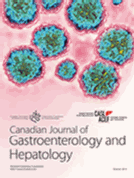
Kiwifruit and Kiwifruit Extracts for Treatment of Constipation: A Systematic Review and Meta-Analysis
2022 Oct 06 Canadian Journal of Gastroenterology and Hepatology Eltorki M, Leong R, Ratcliffe EM
Systematic Review Meta-Analysis Constipation KiwifruitKiwifruit and kiwifruit extracts may have a positive impact on constipation in adults by increasing weekly bowel movements, reducing abdominal pain, and minimizing straining.
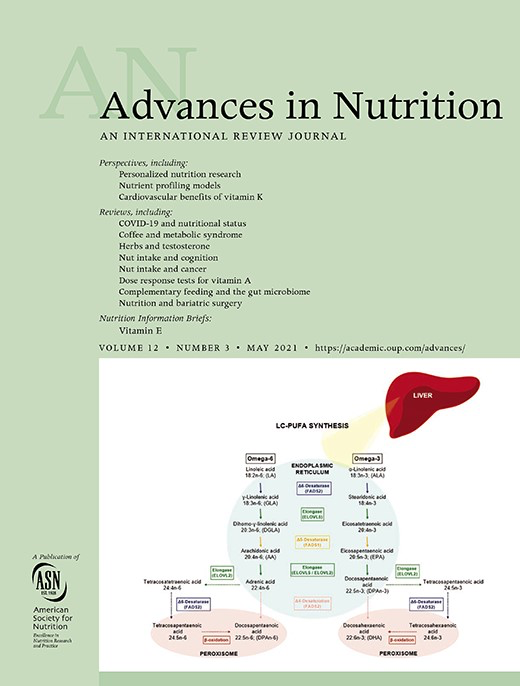
Habitual Green Kiwifruit Consumption Is Associated with a Reduction in Upper Gastrointestinal Symptoms: A Systematic Scoping Review
2022 May Advances in Nutrition Bayer SB, Frampton CM, Gearry RB, Barbara G
Review Article Irritable Bowel Syndrome KiwifruitConsuming kiwifruit, particularly the green variety, can effectively alleviate upper gastrointestinal symptoms like abdominal discomfort, pain, and indigestion.
Clinical Trials
Clinical trials are research studies that involve people and are conducted to evaluate the safety and efficacy of new treatments or interventions, such as drugs, medical devices, or behavioural therapies.

Acute effects of fresh versus dried Hayward green kiwifruit on sleep quality, mood, and sleep-related urinary metabolites in healthy young men with good and poor sleep quality
2023 Mar 14 Frontiers in Nutrition Kanon AP, Giezenaar C, Roy NC, McNabb WC, Henare SJ
Randomised Controlled Trial Serotonin Sleep KiwifruitConsumption of fresh or dried kiwifruit in the evening improves aspects of sleep quality and mood, potentially mediated through changes in serotonin metabolism.
Efficacy of a Kiwifruit Extract (PhenActivTM) on Gastrointestinal Tract Function: A Randomised Double-Blind Placebo-Controlled Study
2023 Jan Food and Nutrition Sciences Briskey D, Mallard AR, Rao A
Supplementation with 3.0 g/day of PhenActivTM for 6 weeks did not significantly affect defecation frequency or stool composition but improved perceived symptoms of GIT function, including symptoms of functional GIT disorders, IBS, and constipation.
Randomised Controlled Trial Kiwifruit Digestive Health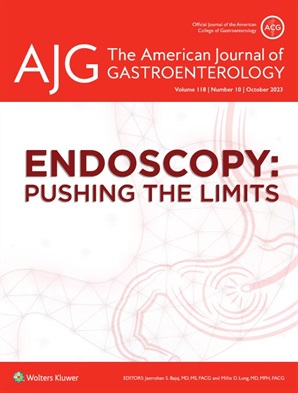
Consumption of 2 Green Kiwifruits Daily Improves Constipation and Abdominal Comfort—Results of an International Multicenter Randomized Controlled Trial
2022 Dec 20 American Journal of Gastroenterology Gearry R, Fukudo S, Barbara G, Kuhn-Sherlock B, Ansell J, Blatchford P, et al.
Randomised Controlled Trial Constipation Kiwifruit Irritable Bowel SyndromeConsuming green kiwifruits is associated with a clinically relevant increase of ≥ 1.5 complete spontaneous bowel movements per week in those experiencing constipation.

Two Gold Kiwifruit Daily for Effective Treatment of Constipation in Adults—A Randomized Clinical Trial
2022 Oct 06 Nutrients Bayer SB, Heenan P, Frampton C, Wall CL, Drummond LN, Roy NC, et al.
Randomised Controlled Trial Constipation KiwifruitTwo gold kiwifruit daily are as effective as fiber-matched psyllium in treating constipation in adults and should be considered as a treatment option.
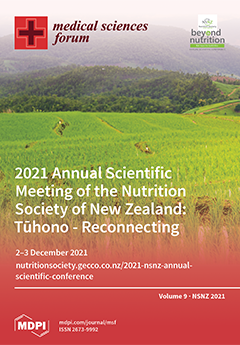
Acute Evening Consumption of Green Kiwifruit in Young Men Enhances Waking Alertness, Mood and Increases 5-Hydroxyindoleacetic Acid in Urine
2022 May 09 NSNZ 2021 Kanon AP, Giezenaar C, Roy NC, McNabb WC, Henare SJ
Randomised Controlled Trial Sleep Mood Kiwifruit SerotoninConsuming New Zealand green kiwifruit improves sleep quality, mood, and increases the concentration of serotonin metabolites.
Study Protocols
Published study protocols are detailed plans that outline the objectives, methodology, statistical analyses, and organisation of a research study that have been made publicly available for others to review and use as a reference.
Presentation Slides

Review Article
Fruits, especially kiwifruits, and rye bread can enhance bowel movements and help manage chronic constipation better than conventional dietary methods.
Van Der Schoot A, Katsirma Z, Whelan K, Dimidi E

Network Pharmacology
Gold kiwifruit extracts contained different bioactive materials which showed selective cytotoxic activity against human oral tumor cells and displayed anti-HIV, antioxidant, and antibacterial activities.
Motohashi N, Shirataki Y, Kawase M, Tani S, Sakagami H, Satoh K, Kurihara T, Nakashima H, Mucsi I, Varga A, Molnár J

Clinical Study
Consuming two medium-sized green kiwifruits an hour before bed can improve sleep quality and recovery stress balance among elite athletes.
Doherty R, Madigan S, Nevill A, Warrington G, Ellis JG

Randomised Controlled Trial
Consumption of fresh or dried kiwifruit in the evening improves aspects of sleep quality and mood, potentially mediated through changes in serotonin metabolism.
Kanon AP, Giezenaar C, Roy NC, McNabb WC, Henare SJ

Animal Study
Kiwifruit polysaccharides may alleviate the toxic effects of acrylamide by improving gut health and enhancing bile acid metabolism.
Chen M, Chen X, Wang K, Cai L, Liu N, Zhou D, Jia W, Gong P, Liu N, Sun Y

Randomised Controlled Trial
Consuming green kiwifruits is associated with a clinically relevant increase of ≥ 1.5 complete spontaneous bowel movements per week in those experiencing constipation.
Gearry R, Fukudo S, Barbara G, Kuhn-Sherlock B, Ansell J, Blatchford P, Eady S, Wallace A, Butts C, Cremon C, Barbaro MR, Pagano I, Okawa Y, Muratubaki T, Okamoto T, Fuda M, Endo Y, Kano M, Kanazawa M, Nakaya N, Nakaya K, Drummond L

Experimental Study
The ethanol extract from green kiwifruit peel enhances sleep duration and onset, proving to be a potential natural aid for treating sleep disorders.
Kim D, Yoon M, Kim S, Um MY, Cho S

Review Article
Eating two gold kiwifruit daily can lead to significant improvements in mood and energy, thereby boosting psychological well-being in adults.
Billows M, Kakoschke N, Zajac IT

Randomised Controlled Trial
Two gold kiwifruit daily are as effective as fiber-matched psyllium in treating constipation in adults and should be considered as a treatment option.
Bayer SB, Heenan P, Frampton C, Wall CL, Drummond LN, Roy NC, Gearry RB

Systematic Review
Kiwifruit and kiwifruit extracts may have a positive impact on constipation in adults by increasing weekly bowel movements, reducing abdominal pain, and minimizing straining.
Eltorki M, Leong R, Ratcliffe EM

Systematic Review
Meta-analysis indicates that fruit consumption, particularly kiwifruits, effectively alleviates constipation symptoms, offering valuable insights into improving gut health.
Huo J, Wu L, Lv J, Cao H, Gao Q

Animal Study
Fermented gold kiwi extract exhibits antioxidant properties, providing protection to the stomach lining and reducing inflammation, making it promising for treating gastritis and gastric ulcers.
Jeon EJ, Choi JH, Lee NY, Oh HJ, Kwon HS, Kwon J

Randomised Controlled Trial
Consuming New Zealand green kiwifruit improves sleep quality, mood, and increases the concentration of serotonin metabolites.
Kanon AP, Giezenaar C, Roy NC, McNabb WC, Henare SJ

Review Article
Consuming kiwifruit, particularly the green variety, can effectively alleviate upper gastrointestinal symptoms like abdominal discomfort, pain, and indigestion.
Bayer SB, Frampton CM, Gearry RB, Barbara G
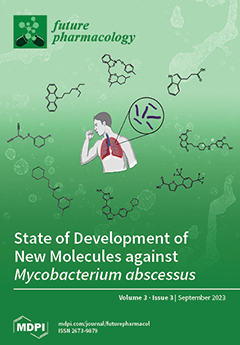
Systematic Review
Eating kiwifruits improves bowel movements and decreases stool consistency, also providing anti-inflammatory and antioxidant benefits to the gut barrier.
Antonelli M, Donelli D
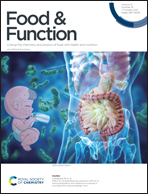
Review Article
Eating fruits such as blueberry, prunes, kiwi, and raisins positively influences gut bacteria leading to improved bowel movements and constipation relief.
Katsirma Z, Dimidi E, Rodriguez-Mateos A, Whelan K

Randomised Controlled Trial
Eating whole SunGold kiwifruits, both with and without skin, can significantly decrease gut inflammation and alleviate constipation for both healthy people and those with irritable bowel syndrome.
Eady SL, Wallace AJ, Hedderley DI, Bentley-Hewitt KL, Butts CA
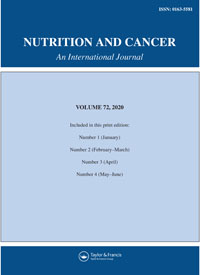
Review Article
Kiwifruit supplementation may be associated with direct and indirect anticancer effects, the former likely due to ascorbic acid-mediated reduction of DNA oxidative injury and cytotoxic effect on cancer cell lines.
Lippi G, Mattiuzzi C

Randomised Controlled Trial
Kiwifruit increases water retention in the small bowel and ascending colon and increases total colonic volume. It could be used as a dietary alternative to laxatives in mild constipation.
Wilkinson‐Smith V, Dellschaft N, Ansell J, Hoad C, Marciani L, Gowland P, Spiller R
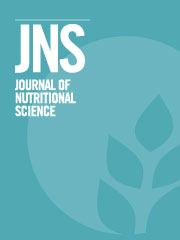
Randomised Controlled Trial
Daily consumption of three gold-fleshed kiwifruit is associated with a significant increase of two complete spontaneous bowel movements per week and reduction in gastrointestinal discomfort in mildly constipated adults.
Eady SL, Wallace AJ, Butts CA, Hedderley D, Drummond L, Ansell J, Gearry RB

Randomised Controlled Trial
Consuming two SunGold kiwifruits daily over 12 weeks improved vitamin C status, reduced blood pressure, waist measurements and altered faecal microbiota composition in prediabetic individuals.
Wilson R, Willis J, Gearry R, Hughes A, Lawley B, Skidmore P, Frampton C, Fleming E, Anderson A, Jones L, Tannock G, Carr A

Review Article
Kiwifruits can relieve constipation and irritable bowel syndrome, potentially through protease-activated signaling, modulation of microflora, changes in colonic methane, bile flux, or mediation of inflammatory processes.
Bayer SB, Gearry RB, Drummond LN

Randomised Controlled Trial
Gold kiwifruit supplementation increases the abundance of the beneficial gut bacterium Faecalibacterium, which could potentially enhance gut microbiota composition and reduce inflammation.
Blatchford P, Stoklosinski H, Eady S, Wallace A, Butts C, Gearry R, Gibson G, Ansell J

Network Pharmacology
The consumption of kiwifruit with a meal can increase the rate and extent of the hydrolysis of protein.
Donaldson B, Rush E, Young O, Winger R

Clinical Study
Consuming two kiwifruits daily can improve overall mood, particularly for individuals starting with moderate mood disturbance.
Carr AC, Bozonet SM, Pullar JM, Vissers MCM
Executive Summary
Write an executive summary in the form of a blog article on the topic of "Research into Chinese medicine treatment for Kiwifruit" summarising the research below and using language that can be easily understood by patients and avoiding medical jargon using a professional and caring tone of voice.
Write an executive summary in the form of a blog article on the topic of "Researched Chinese medicine treatments for Kiwifruit" summarising the research below in an objective and easy to understand way, and using language that can be easily understood by patients. Group the article into Chinese medicine treatments first, followed by nutrition and other treatments. Avoid using medical jargon and use a professional and caring tone of voice.
Write me a concise but easy to understand executive summary on the topic of "Chinese medicine treatments for Kiwifruit" based on the following research that I will give you. Your summary should be 2 paragraphs long in Australian English spelling and include references to the studies.
A Review Article published in 2023 in the journal Alimentary Pharmacology & Therapeutics found that Fruits, especially kiwifruits, and rye bread can enhance bowel movements and help manage chronic constipation better than conventional dietary methods. An exhaustive analysis was conducted incorporating a multitude of studies, including randomized controlled trials and uncontrolled trials, identified through electronic databases till 12th July 2023. The effect of various foods, drinks, and diets on characteristics such as stool output, gut transit time, symptoms, quality of life, adverse events, and compliance in adults with chronic constipation was inspected. The study also examined the response to different treatments and included a variety of foods such as kiwifruit, high-mineral water, prunes, rye bread, mango, fig, cereal, oat bran, yoghurt, water supplementation, prune juice, and high-fibre or no-fibre diets. The synthesized data revealed that the consumption of fruits, particularly kiwifruits, and rye bread led to a higher stool frequency when compared to standard treatments like psyllium or white bread. High-mineral water also proved more effective regarding response to treatment than low-mineral water. On the other hand, no distinctive difference was identified for prunes when set against psyllium as a treatment option. Overall, the study insightfully suggests dietary modifications as a means to manage chronic constipation, emphasizing the potential of fruits such as kiwifruits and rye bread.
A Network Pharmacology published in 2023 in the journal Journal of Ethnopharmacology found that Gold kiwifruit extracts contained different bioactive materials which showed selective cytotoxic activity against human oral tumor cells and displayed anti-HIV, antioxidant, and antibacterial activities. The methodology involved stepwise extraction of gold kiwifruit with hexane, acetone, methanol, and 70% methanol; the extracts were then fractionated using silica gel and ODS column chromatographies to examine their biological activities. Different fractions like H1, H2 (from the hexane extract), A1, A2 (from the acetone extract), and M2 (from the methanol extract) were tested, as well as more hydrophilic fractions from the 70% methanol extract. In the discussion of the results, fractions H1, H2, A1, A2 and M2 displayed notable cytotoxic activity against human oral tumor cell lines, with these showing more sensitivity compared to human gingival fibroblasts. The hydrophilic fractions from the 70% methanol extract demonstrated higher anti-HIV activity, radical generation, and oxygen scavenging activity. However, the antibacterial activity of these fractions was generally lower than that of the more lipophilic (hexane, acetone, methanol) extracts, indicating no distinct antimicrobial action. Interestingly, all fractions were inactive against Helicobacter pylori.
A Clinical Study published in 2023 in the journal Nutrients found that Consuming two medium-sized green kiwifruits an hour before bed can improve sleep quality and recovery stress balance among elite athletes. The study began with an initial assessment, after which all participants were instructed to consume two medium-sized green kiwifruits an hour before bedtime over a 4-week span. Data was collected through baseline and post-intervention questionnaires, as well as daily sleep diary entries throughout the study duration. There was a notable positive effect of kiwifruit consumption on essential aspects of sleep and recovery in professional athletes. After the intervention period, improvements were observed in sleep quality and recovery stress balances. Additionally, there was an increase in total sleep time, sleep efficiency, and a decrease in the number of times participants woke after falling asleep. The study concludes that kiwifruits positively influence sleep and recovery in high-performing athletes.
A Randomised Controlled Trial published in 2023 in the journal Frontiers in Nutrition found that Consumption of fresh or dried kiwifruit in the evening improves aspects of sleep quality and mood, potentially mediated through changes in serotonin metabolism. A randomized, single-blind crossover study involving 24 men with varying sleep quality levels was conducted. Participants were provided with one of three treatments during their standard evening meal at home: the flesh of two fresh green kiwifruits, dried green kiwifruit powder (with skin and equivalent to the dry matter of two fresh kiwifruits) mixed with water, or a water control. Various factors were evaluated including subjective and objective sleep quality, mood, and urine concentration of several compounds including the serotonin metabolite 5-HIAA, vitamin C, and B-vitamins. Findings indicated that regardless of sleep quality group, dried kiwifruit consumption was associated with an improvement in morning sleepiness, alertness upon waking, and vigor as compared to the control. Both fresh and dried kiwifruit treatments suggested an improvement in self-esteem and overall mood disturbance. Increase in the urinary concentration of serotonin metabolite was observed with both kiwifruit treatments. Amongst poor sleepers, ease of awakening was notably improved after the intake of dried kiwifruit and showed signs of improvement with fresh kiwifruit. For good sleepers, there seemed to be an improvement in getting to sleep with fresh kiwifruit. Poor sleepers were found to have lower quantities of certain B-vitamins compared to good sleepers. Thus, both dried and fresh kiwifruit consumption with a standard evening meal showed a positive impact on sleep quality and mood.
A Animal Study published in 2023 in the journal Frontiers in Nutrition found that Kiwifruit polysaccharides may alleviate the toxic effects of acrylamide by improving gut health and enhancing bile acid metabolism. In this study, the team explored the potential protective effects of kiwifruit polysaccharides on disorders induced by acrylamide (a toxic ingredient found in high-temperature, carbohydrate-rich food) on gut microbiota and systemic metabolism. They measured changes in gut microbiota and serum metabolites in mice subjected to acrylamide-induced toxicity, focusing primarily on the effects on mice's bodily features, liver health, and liver enzyme activity. The results revealed that treatment with kiwifruit polysaccharides not only improved the mice's overall health and liver function but also restored the balance in their gut microbiota by increasing microbial diversity and the abundance of beneficial bacteria. Furthermore, it was found that the polysaccharides had a significant impact on amino and bile acid-related metabolic pathways, proving their potential in protecting against toxicity. A strong correlation was also found between certain bacteria and the critical metabolites of bile acid metabolism, providing a deeper understanding of the protective mechanisms of kiwifruit polysaccharides.
A Randomised Controlled Trial published in 2022 in the journal American Journal of Gastroenterology found that Consuming green kiwifruits is associated with a clinically relevant increase of ≥ 1.5 complete spontaneous bowel movements per week in those experiencing constipation. Participants included healthy controls (n = 63), patients with functional constipation (FC, n = 60), and patients with constipation-predominant irritable bowel syndrome (IBS-C, n = 61) randomly assigned to consume 2 green kiwifruits or psyllium (7.5 g) per day for 4 weeks, followed by a 4-week washout, and then the other treatment for 4 weeks. The primary outcome was the number of complete spontaneous bowel movements (CSBM) per week. Secondary outcomes included GI comfort which was measured using the GI symptom rating scale, a validated instrument. Data (intent-to-treat) were analyzed as difference from baseline using repeated measures analysis of variance suitable for AB/BA crossover design. Consumption of green kiwifruit was associated with a clinically relevant increase of ≥ 1.5 CSBM per week (FC; 1.53, P < 0.0001, IBS-C; 1.73, P = 0.0003) and significantly improved measures of GI comfort (GI symptom rating scale total score) in constipated participants (FC, P < 0.0001; IBS-C, P < 0.0001). No significant adverse events were observed.
A Experimental Study published in 2022 in the journal Nutrients found that The ethanol extract from green kiwifruit peel enhances sleep duration and onset, proving to be a potential natural aid for treating sleep disorders. The study employed the electroencephalogram (EEG) and electromyogram analysis methodologies in mice to investigate the sleep-promoting effects of the kiwifruit peel extract. Each participant mouse was administered with varying doses (250, 500, and 1000 mg/kg) of green kiwifruit peel ethanol extract (GKPEE) and their sleep duration, latency and onset were consistently observed and recorded. For comparison purposes, results were weighed against similar analyses conducted using diazepam, a traditional sedative-hypnotic drug. In terms of results, the findings indicated that acute administration of GKPEE significantly increased non-rapid eye movement sleep and decreased sleep latency, in a dose-dependent relationship. Moreover, the effects did not alter delta activity, differing significantly from diazepam outcomes. Notably, these effects prevailed even with sub-chronic administration over 15 days, with the EEG power density not revealing any noteworthy differences - an indicator of the absence of a tolerance phenomenon. Additionally, these results suggest an alternative usage of kiwifruit by-products from the food industry, providing possible environmental benefits.
A Review Article published in 2022 in the journal Nutrients found that Eating two gold kiwifruit daily can lead to significant improvements in mood and energy, thereby boosting psychological well-being in adults. The study conducted a literature review through databases like CINAHL, Embase, and PubMed, searching for English language articles published from 2005 to July 2022. These articles had to be randomized trials involving kiwifruit interventions targeting adults and assessing psychological well-being. The researchers used the Joanna Briggs Institute's critical appraisal tool to evaluate potential bias in these trials. After the search, they selected two suitable trials involving 202 participants. In discussing the results, the evidence found shows that regularly consuming two gold kiwifruits daily was linked with a significant decrease in mood disturbance and fatigue, and a significant increase in vigor and overall well-being. These effects were more pronounced in participants who had more significant initial mood disturbances. The study concluded by underlining the potential utility of consuming gold kiwifruit daily to promote improved psychological health.
A Randomised Controlled Trial published in 2022 in the journal Nutrients found that Two gold kiwifruit daily are as effective as fiber-matched psyllium in treating constipation in adults and should be considered as a treatment option. This study provided evidence that habitual consumption of two gold kiwifruit daily, a realistic standard serving of fruit, is at least as effective as fiber-matched psyllium in lieu of placebo in treating constipation in adults, with fewer side effects, and offers greater ease of defecation through the improvement of stool consistency and reduction of straining.
A Systematic Review published in 2022 in the journal Canadian Journal of Gastroenterology and Hepatology found that Kiwifruit and kiwifruit extracts may have a positive impact on constipation in adults by increasing weekly bowel movements, reducing abdominal pain, and minimizing straining. Kiwifruit and kiwifruit extracts show promise in increasing weekly bowel movements and reducing abdominal pain and straining in adults with constipation, although the overall evidence is of low certainty. However, kiwifruit may lead to minor adverse effects, such as bloating and flatulence, compared to placebo, indicating potential for its use as a dietary supplement in constipation management, especially in conjunction with other laxatives if necessary, but further research is needed to establish its effectiveness.
A Systematic Review published in 2022 in the journal Frontiers in Nutrition found that Meta-analysis indicates that fruit consumption, particularly kiwifruits, effectively alleviates constipation symptoms, offering valuable insights into improving gut health. A meta-analysis of 11 randomized controlled trials (RCTs) examined the effects of fruit consumption on patients with functional constipation. The analysis revealed that fruit consumption, particularly kiwifruits, significantly increased stool frequency, improved stool consistency, and positively impacted microbiota composition, suggesting a potential dietary approach for managing constipation symptoms.
A Animal Study published in 2022 in the journal Applied Sciences found that Fermented gold kiwi extract exhibits antioxidant properties, providing protection to the stomach lining and reducing inflammation, making it promising for treating gastritis and gastric ulcers. The researchers created a fermented powder from golden kiwi fruits, a process that enhances the fruit's bioactive compounds including organic acids, flavonoids, and carotenoids. They then studied its effects using animal models, specifically two rat models; one induced with gastritis via HCl/EtOH and the other with pyloric ligation. The goal was to examine the fermented gold kiwi's (FGK) antioxidative activity, appearing in a dose-dependent manner. The obtained results demonstrated the protective effects of FGK in both animal models. The fermented kiwi notably suppressed inflammation biomarkers such as iNOS, COX-2, IL-6, and TNF-α, which are commonly associated with gastritis and gastric ulcers. It also increased the expression of PGE2, a molecule that protects the tissues. FGK was found to not only improve the appearance of the gastric lesion site but also enhance clinical symptoms and mucosal thickness. In the pyloric ligation model, it reduced gastric fluid volume, total acidity, free acidity, and pepsin activity, thereby showcasing overall gastric protective abilities.
A Randomised Controlled Trial published in 2022 in the journal NSNZ 2021 found that Consuming New Zealand green kiwifruit improves sleep quality, mood, and increases the concentration of serotonin metabolites. A total of 24 men, ranging in age and with varying sleep quality were selected for the study, in a single-blind crossover design, which was randomized. Participants were provided three treatments on separate occasions, each differing by 6-8 days: consumption of two fresh kiwifruits, ingesting green kiwifruit powder mixed with water equivalent to two fresh kiwifruits, or a simple water control. Poor sleepers noted that they woke up more easily after consuming dried kiwifruit, with a similar but less pronounced trend observed when they consumed fresh kiwifruit. Conversely, good sleepers showed a trend towards better sleep initiation with fresh kiwifruit, but not with the dried kiwifruit. Independent of the participants' sleep quality, both fresh and dried kiwifruit largely improved mood and self-esteem. Consumption of dried kiwifruit significantly elevated morning alertness, post-wakening behaviour, and vigour. Both forms of kiwifruit ingestion led to higher urinary concentrations of the serotonin metabolite known as 5-HIAA.
A Review Article published in 2022 in the journal Advances in Nutrition found that Consuming kiwifruit, particularly the green variety, can effectively alleviate upper gastrointestinal symptoms like abdominal discomfort, pain, and indigestion. The research undertook a systematic scoping review of three electronic databases from 1947 until January 2021. The team searched for clinical trials that investigated the effects of either green or gold kiwifruit or their compounds on upper gastrointestinal symptoms. They focused on the studies that had the symptom relief as secondary outcomes in healthy participants or those with functional constipation or irritable bowel syndrome with constipation. The outcomes were analyzed based on the type of measurement tools used; one being the Gastrointestinal Symptom Rating Scale (GSRS) and the others being non-GSRS methods. The analysis unveiled that out of the identified 12 clinical trials, with a total of 661 participants, only five used the GSRS to assess symptom relief. Green kiwifruit showed notable results in reducing abdominal discomfort and pain. Kiwifruit consumption, in general, appeared to diminish indigestion. While the number of studies reporting on symptom relief using a comparable measurement was limited, the evidence for kiwifruit's positive efficacy on gastrointestinal symptom relief remained consistent.
A Systematic Review published in 2021 in the journal Future Pharmacology found that Eating kiwifruits improves bowel movements and decreases stool consistency, also providing anti-inflammatory and antioxidant benefits to the gut barrier. The review included nine clinical studies investigating the effect of kiwifruit consumption on intestinal function and constipation. The studies, focusing on young or middle-aged adults predominantly, required participants to consume between two to four kiwifruits daily for durations varying from three days to four weeks. The impact on elderly individuals was less explored. The review indicates that kiwifruits can enhance bowel movements and reduce stool consistency in both healthy individuals and those suffering from irritable bowel syndrome-induced constipation. The fiber and water content of kiwifruits is thought to contribute to these results. Furthermore, consumption of kiwifruit showed extra intestinal health advantages, including anti-inflammatory and antioxidant effects on the gut barrier. However, when focusing on patients with constipation, the fruit's consumption correlated with a temporary increase in defecation frequency but inconsistently impacted stool consistency. High-quality methodical studies and meta-analysis substantiated these findings.
A Review Article published in 2021 in the journal Food & Function found that Eating fruits such as blueberry, prunes, kiwi, and raisins positively influences gut bacteria leading to improved bowel movements and constipation relief. The research was conducted via a comprehensive review of animal and human studies investigating the impact of various fruits on gut motility and intestinal microbiota. Techniques used to gather data included electronic database searches, hand searches, and expert consultation. Fruits evaluated in the review included blueberries, prunes, kiwi fruit, and raisins, with an emphasis placed on their fiber, sorbitol, and (poly)phenol content. Each fruit's influence was studied in relation to its potential to modify gut microbiota and its consequences on gut motility and constipation. In the subsequent analysis, Blueberry powder was found to influence certain gut bacteria like lactobacilli and bifidobacteria, prunes contributed to the growth of bifidobacteria, kiwi fruit impacted Bacteroides, and raisins had an effect on Ruminococcus. Apart from these, other fruits like apples (through apple fiber isolate), oranges (orange extract), and fig (fig paste) were also cited for their crucial effects on gut transit time and overall digestive health. The mechanism behind these effects, the specific components playing a role, as well as the potential synergistic effects of multiple components were also explored, albeit limitedly.
A Randomised Controlled Trial published in 2020 in the journal Nutrients found that Eating whole SunGold kiwifruits, both with and without skin, can significantly decrease gut inflammation and alleviate constipation for both healthy people and those with irritable bowel syndrome. In the 16-week cross-over study, 38 participants (both healthy and those with Irritable Bowel Syndrome-Constipation) were randomly assigned to consume either three whole SunGold kiwifruits without the skin or three whole kiwifruits with the skin for periods of four weeks, with a length of four weeks between each intervention as a washout period. Following the intervention, it was observed that there was a significant reduction in pro-inflammatory cytokines (specifically TNF-α) for both the healthy participants and those with Irritable Bowel Syndrome-Constipation when whole kiwifruits, including the skin, were consumed. Furthermore, similar results were witnessed for the healthy individuals upon consumption of whole kiwifruits without their skin. The consumption of kiwifruit – including its skin – also increased bowel frequency and led to significant reductions in the gastrointestinal symptom rating scale for constipation and Irritable Bowel Syndrome-related pain scores for both participant groups. Results indicate that the skin of the SunGold kiwifruit may have beneficial effects on gastrointestinal health that are not derived from merely consuming the fruit's flesh.
A Review Article published in 2019 in the journal Nutrition and Cancer found that Kiwifruit supplementation may be associated with direct and indirect anticancer effects, the former likely due to ascorbic acid-mediated reduction of DNA oxidative injury and cytotoxic effect on cancer cell lines. Overall, 58 items could be retrieved, fifty of which were excluded since they did not fulfilled all our search criteria. Eight studies (five in vitro studies, two human intervention trials, and one both in vivo and in human study) were finally included in this critical literature review. Taken together, the results of these published studies suggest that kiwifruit supplementation may be associated with direct and indirect anticancer effects, the former likely due to ascorbic acid-mediated reduction of DNA oxidative injury and cytotoxic effect on cancer cell lines, the latter more likely attributable to enhanced daily bowel movements and increased intestinal fecal content of lactic acid bacteria, which would finally contribute to lower the risk of malignancies, especially colorectal cancer.
A Randomised Controlled Trial published in 2019 in the journal Alimentary Pharmacology & Therapeutics found that Kiwifruit increases water retention in the small bowel and ascending colon and increases total colonic volume. It could be used as a dietary alternative to laxatives in mild constipation. This study aimed to use MRI techniques to identify the mechanism of action behind the therapeutic benefit seen from kiwifruit in previous studies. We hypothesised that some of the physicochemical properties of kiwifruit would increase intestinal water, and we have found this to be the case. Colonic water content, reflected by T1 relaxation time, showed some increase in the ascending colon. This is likely due to water trapping by the fruit fibre in the small intestine. The timing of the increase in colonic water content in the second half of the study day is in accordance with when the meal contents would be predicted to reach the caecum. In the descending colon measuring T1 relaxation time was challenging, as the descending colon was sometimes empty. There was no difference in T1 found here and the values were generally lower than those in the ascending colon. This is as previously reported15 and in keeping with the function of the colon in progressively dehydrating colonic contents as they move distally.
A Randomised Controlled Trial published in 2019 in the journal Journal of Nutritional Science found that Daily consumption of three gold-fleshed kiwifruit is associated with a significant increase of two complete spontaneous bowel movements per week and reduction in gastrointestinal discomfort in mildly constipated adults. This randomised, controlled study demonstrated that consumption of three A. chinensis var. chinensis ‘Zesy002’ (Zespri® SunGold kiwifruit) daily in mildly constipated individuals resulted in a significant increase in two CSBM per week when compared with baseline and the dietary fibre supplement Metamucil®. It also reduced gastrointestinal discomfort by improving symptoms of indigestion, constipation and abdominal pain when compared with baseline and significantly improved indigestion when compared with Metamucil®. ‘Zesy002’ were also well tolerated, efficacious and safe. This is the first study assessing the impact of ‘Zesy002’ on stool frequency and gastrointestinal discomfort, and the results suggest that SunGold kiwifruit has some potential as a possible alternative therapy for constipation. Further studies in this area are required to replicate these findings in other populations and to ascertain a deeper understanding of the mechanisms of action that may be driving these results. These will help to confirm and grow the evidence for ‘Zesy002’ kiwifruit as a whole food which can be incorporated into the daily diet as a treatment for improving symptoms in mildly constipated individuals.
A Randomised Controlled Trial published in 2018 in the journal Nutrients found that Consuming two SunGold kiwifruits daily over 12 weeks improved vitamin C status, reduced blood pressure, waist measurements and altered faecal microbiota composition in prediabetic individuals. Over a 12 week pilot intervention trial, people with prediabetes were observed after consuming two SunGold kiwifruits per day. Participants filled out a physical activity questionnaire and a three-day estimated food diary at both the commencement and end of the trial. Venous blood samples were collected at the start, in between (at 6 weeks) and at the end of the trial, to observe glycaemic indices, plasma vitamin C concentrations, hormones, lipid profiles and high-sensitivity C-reactive protein levels. Additionally, participants provided faecal samples at each visit for DNA extraction and subsequent amplification and sequencing of a region of the 16S ribosomal RNA gene to determine faecal microbiota composition. The differences were then compared between week 12 and their baseline measurements revealing a significant increase in plasma vitamin C concentration. Further changes including significant reductions in both diastolic and systolic blood pressure as well as waist circumference and waist-to-hip ratio were recorded. Despite recording a slight drop in HbA1c levels and a minor increase in fasting glucose, the changes were small and not clinically significant. Moreover, the composition analysis of the faecal microbiota indicated an increase in the relative abundance of hitherto uncultivated, hence uncharacterised members of a particular bacterial family. These findings suggest that these unknown bacterial members could potentially have a functional relationship with the polysaccharides and polyphenols in kiwifruits.
A Review Article published in 2017 in the journal Critical Reviews in Food Science and Nutrition found that Kiwifruits can relieve constipation and irritable bowel syndrome, potentially through protease-activated signaling, modulation of microflora, changes in colonic methane, bile flux, or mediation of inflammatory processes. The review outlines the physiological processes underlying constipation and irritable bowel syndrome, and discusses the nutritional composition of kiwifruits. It delves into recent advances made in the study of kiwifruits and their impact on abdominal comfort, with the focus being given to the effect of kiwifruit fibers on gastrointestinal health. The study also identified and examined certain gaps in the existing research, using indications from studies on other foods known to affect the gastrointestinal tract to derive possible mechanisms of kiwifruits' beneficial actions. In discussing the results, the review observed that while the effect of kiwifruit fibers on gastrointestinal health is well established, the supposed increase in gastrointestinal motility caused by kiwifruits is yet to be fully characterized. Numerous potential mechanisms were invoked that could be contributing to the physiological effects observed - these included the induction of motility through protease-activated signaling, the modulation of microflora in the gut, alterations in colonic methane status or bile flux, and the mediation of inflammation within the gut.
A Randomised Controlled Trial published in 2017 in the journal Journal of Nutritional Science found that Gold kiwifruit supplementation increases the abundance of the beneficial gut bacterium Faecalibacterium, which could potentially enhance gut microbiota composition and reduce inflammation. This research was conducted on two groups of participants: one healthy and the other suffering from Functional Constipation (FC). The groups, one containing 20 individuals (one of whom did not complete the study) and the other 9, were given ACTAZIN™ green (in doses of 2400mg and 600mg) and Livaux™ (2400 mg) gold kiwifruit supplements, as well as a placebo in the form of isomalt. The study design was a randomized cross-over structure carried out over 4 weeks, with 2 weeks washout periods between each stage. Changes in faecal microbiota composition and metabolism were assessed using 16S RNA gene sequencing and Gas Chromatography (GC), and colonic pH was measured via SmartPill wireless motility capsules. The baseline measurements showed that the composition of the faecal microbiota differed significantly between the two groups, with certain bacterial taxa such as Bacteroidales markedly more abundant in the healthy group, while others, including Ruminococcaceae, were more prevalent in the FC group. The clearest change affected by the nutrient supplementation was an increase in Faecalibacterium abundance in the FC group following Livaux™ supplementation, a result observed in nearly all participants in this group. As lower proportions of Faecalibacterium are often linked with gastrointestinal disorders, this increase suggests that the supplements could offer a strategy for ameliorating these conditions.
A Network Pharmacology published in 2014 in the journal Nutrients found that The consumption of kiwifruit with a meal can increase the rate and extent of the hydrolysis of protein. This in vitro study has shown that in elevated gastric pH conditions, such as may present with compromised gastric function, the addition of kiwifruit protease more than doubled the rate of hydrolysis of meat protein. This novel finding supports the hypothesis that consumption of kiwifruit with a meal can increase the rate and extent of the hydrolysis of protein. Evidence is also provided that when the added acid concentration decreased from 0.074 M to 0.022 M (HCl), pepsin activity reduced by 50% and kiwifruit activity increased by 300%. This evidence indicates that kiwifruit may exert its influence on digestion by increasing the extent of protein digestion in the gastric medium when the secretion of pepsin and/or hydrochloric acid is less than optimal. It is reported [12] in a study of 365 healthy subjects, average fasting gastric pH was 2.16 ± 0.11 for men and 2.79 ± 0.18 for women, but in another study of 79 healthy elderly people [13], 11% of the participants recorded fasting gastric pH > 5.0 throughout the study.
A Clinical Study published in 2013 in the journal Journal of Nutritional Science found that Consuming two kiwifruits daily can improve overall mood, particularly for individuals starting with moderate mood disturbance. The research study investigated the potential mood-enhancing effects of kiwifruit, involving a sample group of 35 young adult males who were supplemented with either half or two kiwifruits a day for 6 weeks. Through this observational period, their moods were evaluated with the use of Profile of Mood States questionnaires that were administered at the start and end of the intervention. In the results discussion, it was noted that there was no observable effect on overall mood for the group that consumed half a kiwifruit daily. However, interestingly, for those who consumed two kiwifruits daily, there was a trend towards a decrease in total mood disturbance as well as depression. This was especially significant among participants with higher initial mood disturbance, showing decrease in mood disturbance and fatigue, and increase in vigour. This research also observed a significant increase in dietary vitamin C intake and corresponding plasma levels among the participants. There was no apparent effect of consuming two kiwifruits daily on the mood scores of participants with low initial mood disturbance.
Moderation Tools
Topic
Sign In
Users not signed in are limited to viewing the 5 most recent items of content.